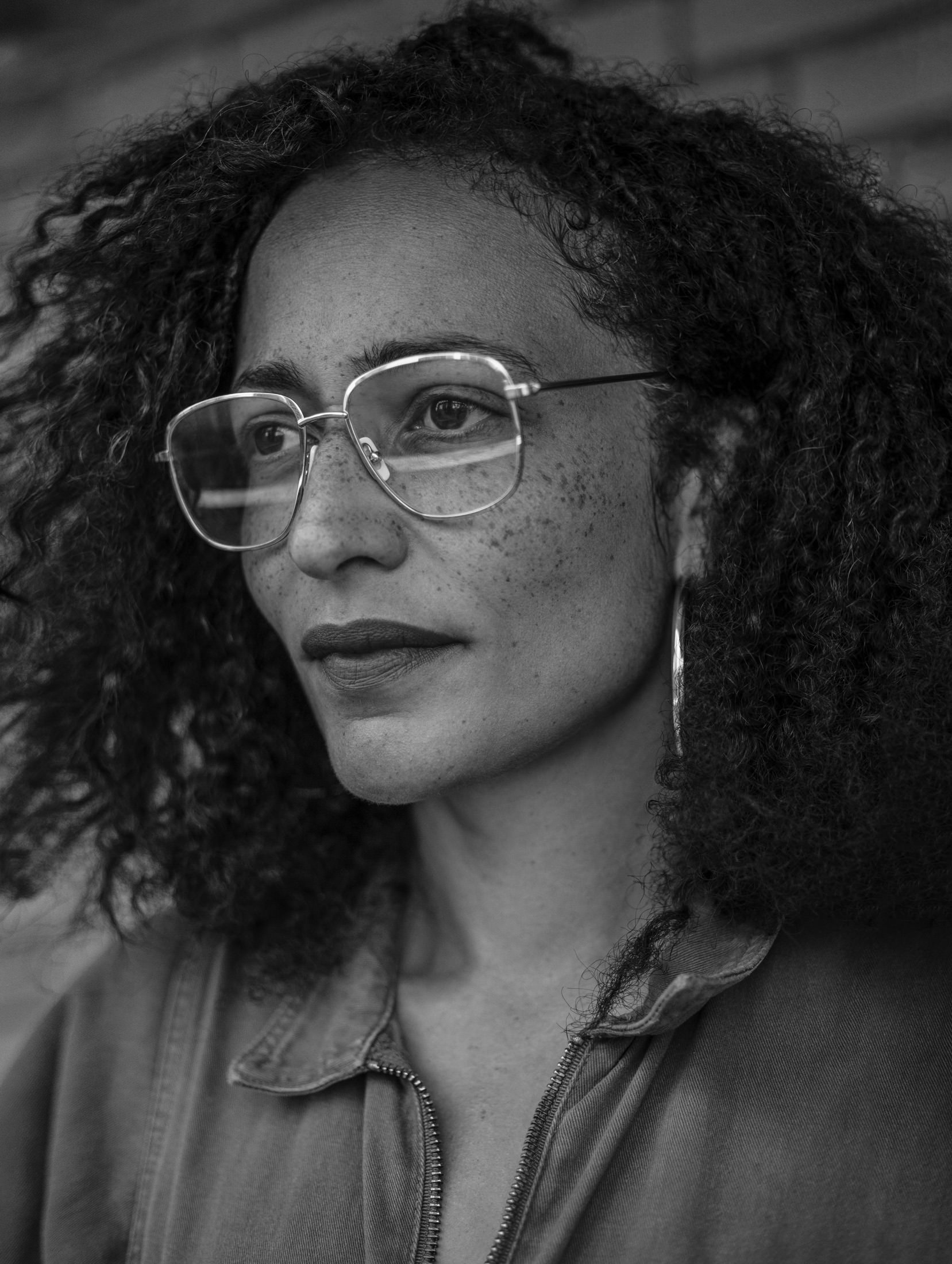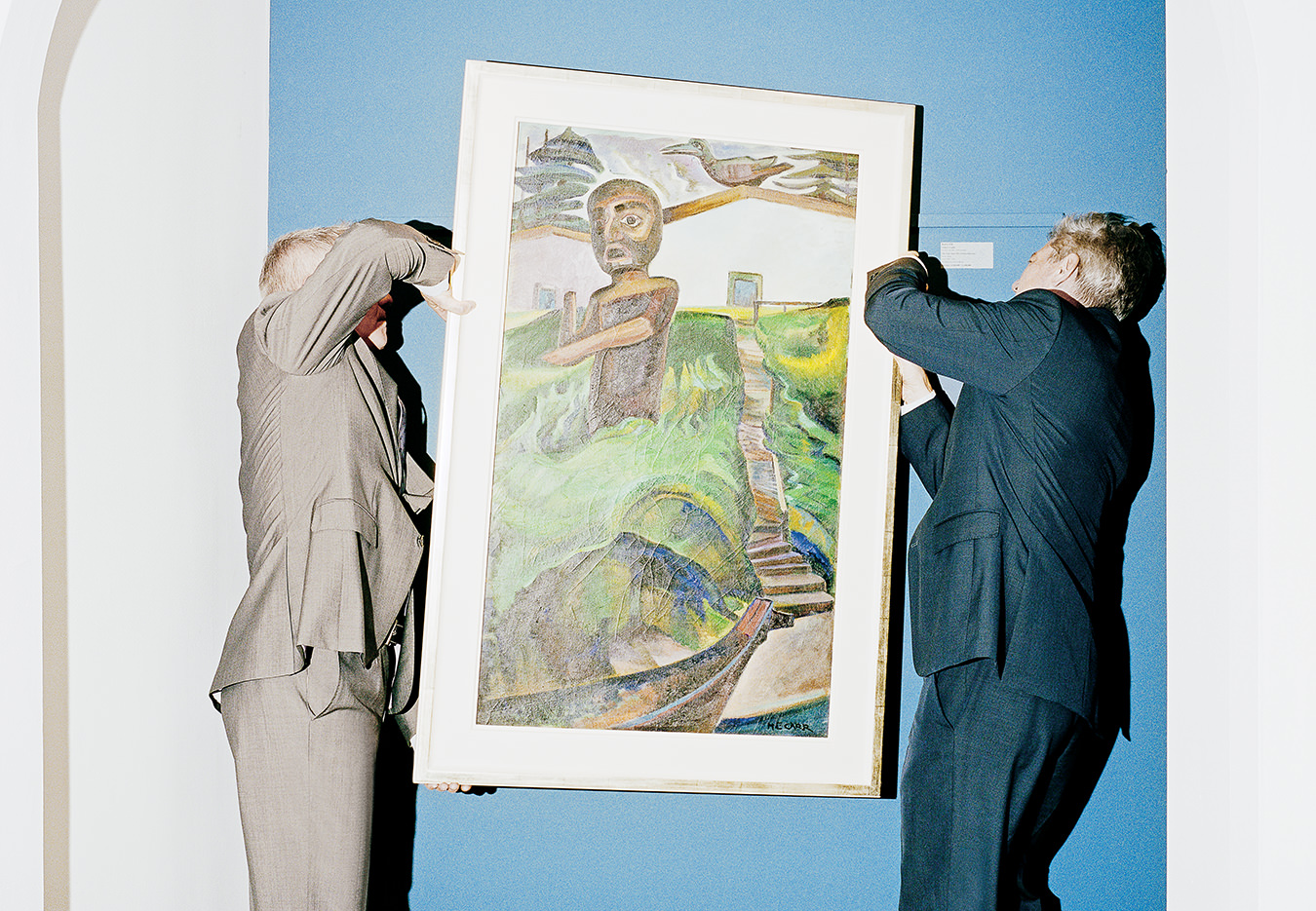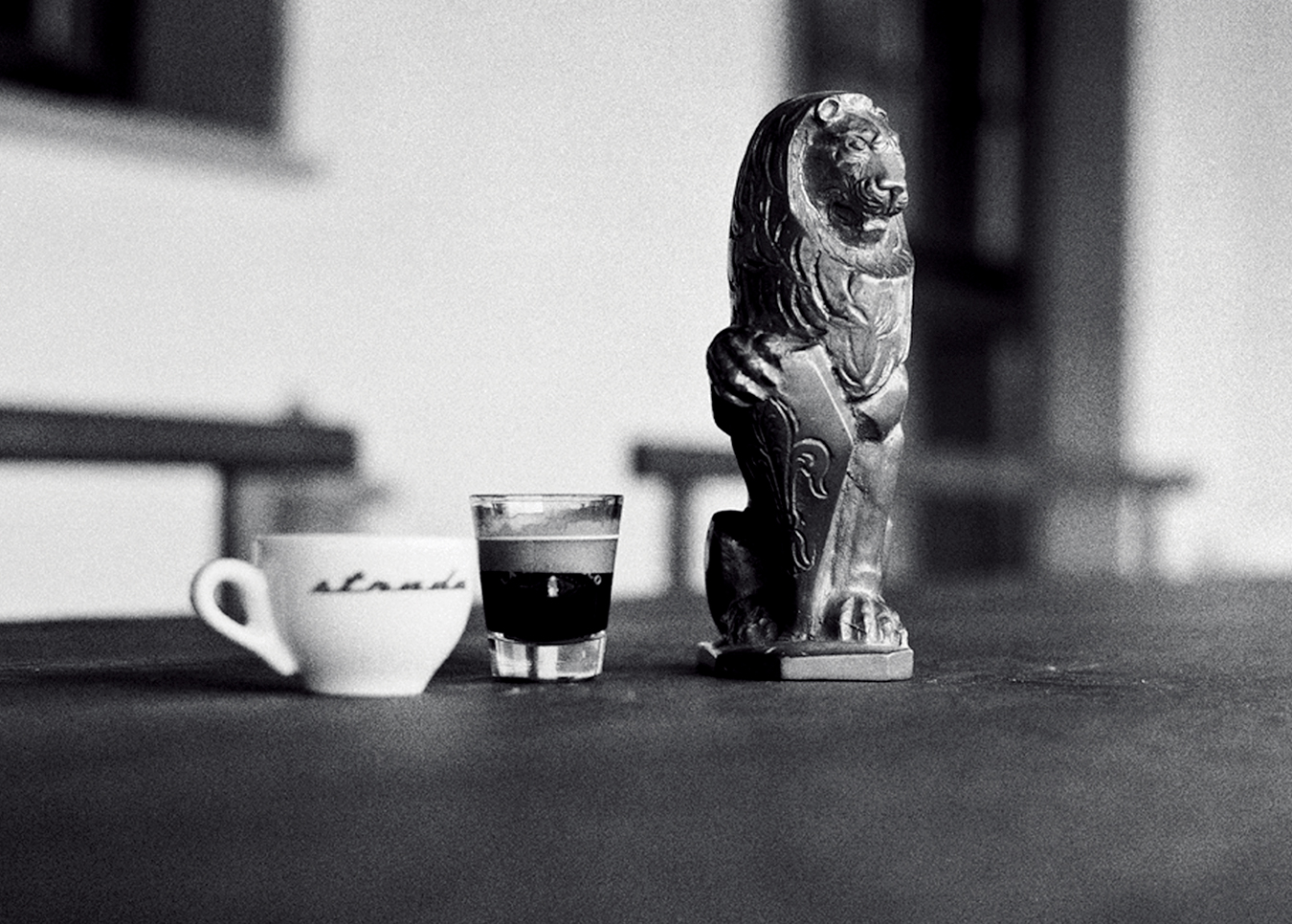The Life and Work of Zadie Smith
Freedom of literary voice.

Grand Union, a new collection of short stories by Zadie Smith, is out. The British author, who burst onto the scene in 2000, continues to be a voice for literary freedom, heralding a humanity that is collective and diverse—in which we all belong to something greater.
To understand the life and work of Zadie Smith, one must understand Willesden, the London neighbourhood she grew up in, and its particular place in British history. The mind of the award-winning 44-year-old novelist—plus her heart, her soul, her politics—is all tangled up with this formerly working-class area. With blocks crammed with Victorian buildings and bodies from all over the world. With Muslims, Jews, Sikhs, Hindus, Protestants, Catholics, atheists, Marxists, and, as Smith wryly observes in the essay “Fences: A Brexit Diary”, “the kind of people who are religious about Pilates” all living side by side, going to the same schools, libraries, and hospitals. Living out their individual lives, together.
This, of course, did not happen by accident, but by design. And the social blueprint that birthed such a life is vanishing in the age of globalization and neoliberalism.
Indeed, the state has played as central a role in Smith’s life as the streets of Willesden—and has been just as central to her literary success. “Some people owe everything they have to the bank accounts of their parents,” Smith writes in another of her essays, “The North West London Blues”. “I owe the state.”
It was Britain, after all, that supported her at pivotal moments in her life. When she started school, a brainy girl with a Jamaican mother and an English father. When she broke her leg, and her teeth needed fixing, and she needed glasses. When she wanted to play sports, and take music lessons, and read library books. When she got into university and a grant enabled her to go. When her brother was hit by a truck and universal health care saved his life. When her veteran father needed housing in old age. And when, at 33, she gave birth to the first of her two children. “To steal another writer’s title: England made me,” Smith writes. “It has never been hard for me to pay my taxes because I understand it to be the repaying of a large, in fact, an almost incalculable, debt.”
It’s not just services that she received from her country, either; it’s a vision of society, of humanity, that is collective, diverse, and optimistic, if in a measured, ambivalent way. It’s this vision that’s become a through line in Smith’s wide-ranging body of work, from her critically acclaimed debut novel, White Teeth (about two friends, an Englishman and a Bengali Muslim, living in pluralistic, multicultural Willesden), to her latest undertaking, Grand Union, an ambitious, eclectic collection of stories on themes ranging from identity politics to the Internet to middle age, published in October. As well as her recent essay collection Feel Free, in which “The North West London Blues” appears. In fact, chatting with Smith in New York, Willesden is one of the first things we speak about.
“The thing that most struck me, I suppose, as a child, was the variety,” Smith says. “In my school, there were something like over a hundred languages spoken.” And while she didn’t know it at the time, the population tracked the migration patterns of people fleeing conflict. One year, Bosnians would arrive; the next would see the arrival of Somali refugees. Life wasn’t always easy, or joyful, but Smith was aware of a basic level of support—of living in a state that was, at least to some degree, interested in providing for her welfare.
Still, not everyone got to experience this. “The system still failed so many people,” she stresses. “It made a small space—a kind of meritocratic space—for people like me, for people like my husband over in Northern Ireland, in a similar kind of state institution. But that doesn’t make the system fair.” It wasn’t ideal, she says, but it’s better than what is there now. Her husband, she says, often puts it this way: “There used to be a thin path out, and now there’s no path.”
Smith’s life and work—now split between countries, and cultures, and classes, and identities—don’t ever read like a stretch. They are expansive, open. Full of possibility.
If Smith’s path out was fostered by school smarts, it should come as no surprise that its biggest turning point came with the news of her acceptance to Cambridge. “That was the break with generations of my people on both sides,” she tells me. This single moment, in fact, laid the foundation for her entire adult life. It was at Cambridge, after all, that she began writing White Teeth. When she was just 21 years old, the novel kick-started a bidding war that garnered a rumoured £250,000 ($400,000 Canadian) advance and launched what The Guardian has referred to as “the kind of success that most novelists can barely dream of.”
It was at Cambridge, too, that she met her husband, the poet and novelist Nick Laird. And it was there that she began publishing essays—a genre that’s become an essential part of her oeuvre, with prestige presses providing a platform for her sterling observations on a range of subjects, from visual arts and politics to hip-hop, which she grew up listening to alongside her two rapper brothers.
Non-fiction has indeed opened up countless new worlds to Smith, including celebrity. In 2002, she was “very young and very anxious,” she says, when Vibe magazine sent her to Buffalo, New York, to write a cover story on Eminem. She spent days hanging out with Eminem’s entourage before finally finding herself face to face with the pop-culture phenomenon, who at the time was being angrily debated in the Senate. She found him “such a quiet, and sincere, and thoughtful person—as I’d suspected he would be.” Also: a genius.
Smith laughs when she’s reminded of this. “Afterwards, in England, that interview was a scandal,” she says. “Because all the white feminists hated him and had all kinds of arguments against him, and couldn’t see—what I felt I could see—what was so extraordinary about him. So I was kind of firefighting on about a million different fronts. And a lot of the black hip-hop fans hated him on principle.” She adds, “I felt a great feeling of pity for him and empathy for him. Because I could see [the fame] that was happening was on an obscene and unnatural scale. And that no one—no reasonable person—could deal with what was in the process of happening.”

To understand the life and work of Zadie Smith, one must also understand Lower Manhattan, where the celebrated writer now lives and works.
Navigating such a massive gap between an old life and a new one is something Smith thought about while interviewing Jay-Z, too, who started out as a low-level drug dealer in housing projects in Brooklyn and is now, of course, a multimillionaire music mogul in Tribeca. She admires his ability to accept this transition, to locate his artistry in this new life. To above all be truthful about his current reality. “I don’t think class is something in the blood—it’s not a genetic condition,” Smith says. “It’s a structural condition, and when it changes, it’s, to me, outrageous to call yourself by a name that does not apply to you anymore. I find it an insult to working people.”
Obviously, you are from a certain background and that gives you certain insights, she continues, but when it comes to money, once you get some, you very quickly forget what it’s like to live with money worries every moment of the day. “That’s a special way of being alive,” she adds, “and if you don’t know it anymore, you don’t know it.”
And so, to understand the life and work of Zadie Smith, one must also understand Lower Manhattan, where the celebrated writer now lives and works. One must reflect on this new realm, where Smith the glamorous author lives in a spacious apartment, teaches at a prestigious university, throws soirées attended by the likes of Martin Amis and Salman Rushdie, and walks the same blocks as Hollywood stars and hedge fund managers. The Zadie Smith who lunches with Barack Obama (“He’s exactly how you think he is—he’s an extremely reasonable, calm man”) and whose book releases are major media events. And who now lives smack-dab in the middle of the central 21st-century narratives: the crumbling of America; the dissolution of democracies; the rise of populism; the isolation of the individual in the era of social media and smartphones (which Smith avoids, urging us all to read Shoshana Zuboff’s The Age of Surveillance Capitalism).
Smith probes this current state of affairs in an essay for The New York Review of Books titled “Under the Banner of New York”. Here, she champions her adopted hometown, which contains “every variety of human,” and quotes a poem by her husband, lauding “this city’s brute capacity for gathering.”
On the island of Manhattan, as in Willesden, so many different people exist side by side, and the banner they live under, “New York”, is elastic enough to include them all. To give them all the freedom to live as they choose and still belong to something greater. It’s not perfect; there are still massive divisions in race and class, she points out. But it’s also not nothing.
This sense of connection to, and responsibility for, one another manifests in small acts of collective kindness: in the brusque brigades that form on the street when a stroller gets stuck on the curb and loses a wheel, or when an old woman falls down, dislodging a shoe. The people “who claim to believe that the only meaningful societal bonds are fixed and solid and unbroken—blood, nation, faith,” she writes, “can never truly comprehend a city like New York in its everyday mode, in which bonds gather and dissipate with a dizzying fluidity and yet, for the brief duration that they are in place, can display a mighty strength.”
Smith revisits this spirit in Grand Union, in “Kelso, Deconstructed”, named for a black Antiguan immigrant who was murdered by white youths in London in 1959. In the short story, a young Marxist at his funeral preaches about the need to “enter into each other’s stories.”
It’s a phrase that, should one ever wish to sum up Smith’s brilliance in a few words, would do the job nicely. Because if her writing does anything, it does this. It encourages us all to enter into each other’s stories.
“It’s a meaningful idea to me,” she explains. “I grew up, again, in this idea of a broad-based working-class coalition between white, black, and Indian, people of all creeds uniting together at the level of class. I know it’s a completely different world we live in now, but I guess those principles are still deep in my thinking.”
This is perhaps why Smith’s life and work—now split between countries, and cultures, and classes, and identities—don’t ever read like a stretch. But rather: expansive, open. Full of possibility.
“I’m thinking about freedom always when I’m writing,” she says. “I’m hoping to make myself feel free. And to make others feel free.”

Zadie Smith photographed in Washington Square Park, New York.
_________
Never miss a story. Sign up for NUVO’s weekly newsletter here.




